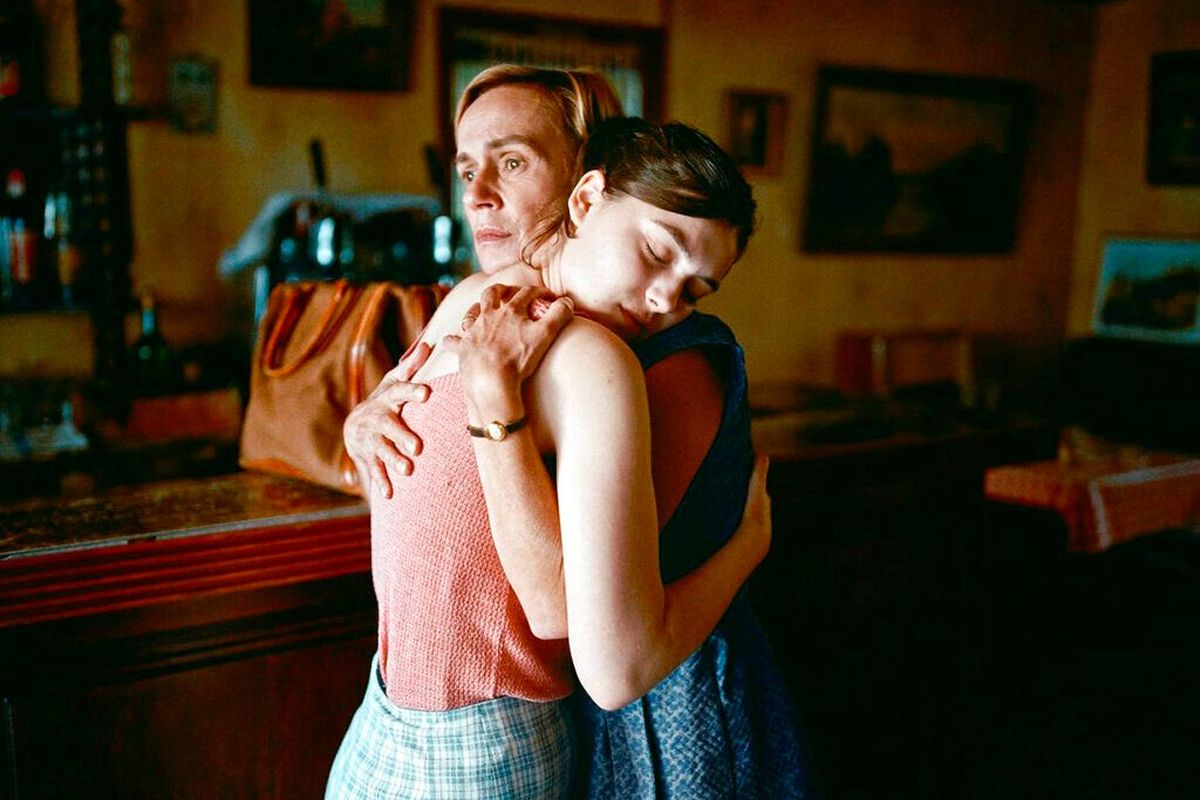Review: ‘Happening’ shows past (and maybe future) of abortion

Audrey Diwan’s masterly second feature, “Happening,” is the story of a young woman trying to save her own life; a harrowing, tense and utterly riveting survival story. The question of whether or not our young heroine, Anne (Anamaria Vartolomei), racing against the clock, will make it out with her future intact is the urgently dramatic question at hand.
“Happening” is the story of an abortion, one that French writer Annie Ernaux underwent in her early 20s as a college student, in 1960s France, when abortion was illegal there. It was an experience that she documented in her 2000 memoir “L’événement,” which Diwan and Marcia Romano adapted for the screen. “Happening,” which won the Golden Lion at the 2021 Venice Film Festival, and could prove to be the most important film of 2022, is a powerful argument for life: for Anne’s life, in fact, and her right to live hers how she chooses.
Anne is a brilliant literature student, with a couple of close friends (Louise Orry-Diquéro and Luàna Bajrami), academically minded girls who are just starting to explore flirtations and boys, or so it seems. When we see Anne check her underwear, and write “still nothing” in her calendar diary, we don’t need to see the inciting incident to know. When her family doctor gives her the news, her choice is immediate, firm and unwavering. She demands, “Do something!” Alas, he replies, “The law is unsparing.”
Anne’s obstacles are purely external – her decision is not the difficult part. Simply, effectively and with a skillful economy of storytelling, Diwan has already presented us with Anne’s alternatives to continuing her academic career, which an abortion would enable: marriage, or a return to her working class roots. Every action Anne takes is only a desperate attempt to secure the future for which she has worked so hard.
But a code of silence about the illegal procedure prevents her from accessing information. Talking to doctors is dangerous, confessing to her closest confidants results in scorn and harassment, the social shame of abortion wrapped up in the fraught sexual politics of the day, in which sexuality is rigidly policed among the young women. Her choice, which could result in death or injury, is the only viable option, but if she’s caught, she could face prison.
Diwan takes us on Anne’s journey with an unflinching first-person perspective of this experience. The camera moves fluidly, following Anne around, hovering over her shoulder, peering at other people or down between her legs. Often, the camera lingers on the reactions of her friends or the doctors she visits, but when the camera cuts back to her, it’s to take in Anne’s reaction to the cruelty and impossibility of the world around her. Chapter titles that list the increasing number of weeks add to the tautly strung tension of her quest.
Diwan regards it all with clarity, and even the most physically challenging moments are presented as matter-of-fact. But “Happening” isn’t a grim cinematic experience. Diwan dares to make this film beautiful, with an exceptionally striking naturalism and grace. The color, especially the blue clothing and architectural details that draw out Vartolomei’s arresting blue eyes, are richly photographed by cinematographer Laurent Tangy.
Though set in the 1960s, there’s a timelessness to “Happening” and the modern way in which Anne looks and carries herself that makes it feel immediate. Current events also render this film all too achingly relevant. In an ideal world, “Happening” would simply be a lesson about a dark history. Instead, it might be a chilling portent of the future.
It is a cautionary tale, showing viewers this world without legal abortion, which is unnecessarily treacherous and unforgiving for women. What’s barbaric is how Anne is treated while seeking to make this choice for herself, shunned by friends, admonished and even tricked by the male medical establishment, told to accept an unwanted pregnancy against her will.
When she finally receives an abortion, in a private home, it’s a stark, even heartening, reminder that abortion has always existed, that it will never go away. It might be conducted in the bedrooms of mysterious women or in girls’ dormitories, but people have always had abortions and will never stop even if it is illegal or risky. But it doesn’t have to be the way it’s depicted in “Happening”: inaccessible, cloaked in shame and life-threatening. “Happening” shows us how it was. It should not show us how it will be.